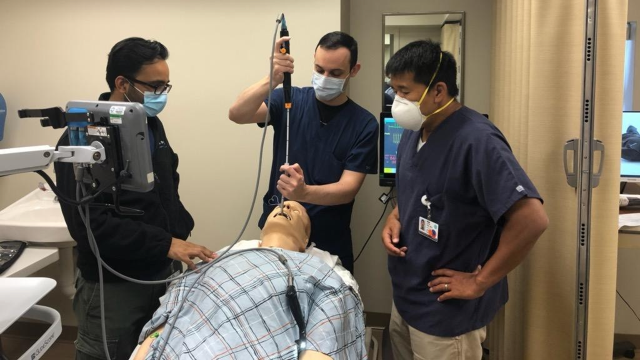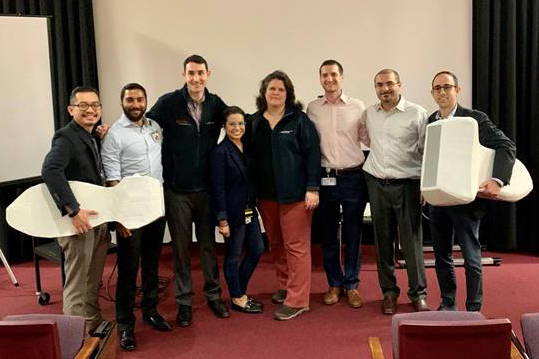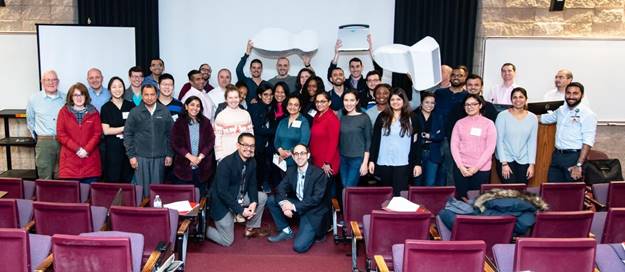Curriculum
Curriculum
Pulmonary & Critical Care Medicine Fellowship Program
NJMS Pulmonary and Critical Care fellows are engaged in learning pulmonary and critical care medicine from day one of their training. The curriculum includes both clinical training and structured educational activities. Clinical training objectives include attaining expertise in diagnosis and management of patients with acute and chronic respiratory processes, in both the inpatient and ambulatory settings, focusing on evidence-based medicine. We emphasize systematic procedural teaching and high-level skill acquisition, using a multitude of teaching tools and methods including:
- Hands on workshops
- Case-based simulation
- Mannequins and task trainers
- High fidelity simulators
- Skills checklists and image portfolio reviews
Development and refinement of teaching and leadership abilities are built into both clinical rotations and structured educational sessions. Active participation in mentored research activities is expected. A weekly protected academic half day includes a variety of educational conferences. Individual progress is measured across 6 core competencies, including medical knowledge, patient care, systems-based practice, practice-based learning and improvement, professionalism and interpersonal and communication skills.

PCCM Fellowship:
Year One fellows focus on the foundations of pulmonary and critical care medicine and becoming adept at caring for patients in the medical ICU and those with respiratory illnesses requiring either inpatient or outpatient care. Skill and expertise in all ICU-related procedures, pleural procedures and basic bronchoscopy are emphasized in the initial year. Fellows begin a longitudinal learning program in critical care ultrasonography, taught by our expert, nationally recognized faculty. The UH ICU experience includes management of patients with neurological critical illness and advanced liver disease, including patients being evaluated for transplant. Fellows will care for critically ill oncologic patients, as well as gain experience with extracorporeal membrane oxygenation devices (ECMO) at HUMC.
Year Two fellows further develop their knowledge of pulmonary medicine. Additional pulmonary experiences include clinics in pulmonary hypertension, sleep, TB/mycobacterial infections, sarcoidosis and neuromuscular disease. Advanced bronchoscopy and bedside ultrasonography teaching are a focal point of this year. Year two fellows gain experience in the cardiothoracic ICU, including exposure to advanced ventricular support devices, as well as in a trauma ICU, and focus on team leadership and teaching skills in the medical ICU.
Year Three fellows are board eligible in Pulmonary Medicine and dedicate the first quarter of this year to honing their pulmonary knowledge. Senior fellows refine their advanced bronchoscopy and other procedural skills and become competent in Endobronchial US and Navigational bronchoscopy. They attain expertise in point-of-care ultrasonography and have the opportunity to become instructors in regional and national US courses.


CCM Fellowship:
Critical Care fellows rotate to all clinical training sites. The clinical experience is heavily weighted towards evaluation and management of critically ill patients, and includes rotations in the MICU, SICU, and CTICU. Fellows also become familiar with the care of inpatients with common and complex pulmonary illnesses. They will become skilled in basic bronchoscopy, as well as all critical care procedures and point of care ultrasonography. Two year critical care fellows will have additional time for electives and scholarly work. Conferences and other educational activities are inclusive of all fellows, whether PCCM or CCM fellows.
